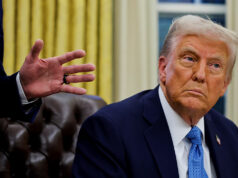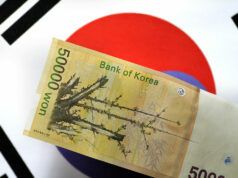Taiwan plans extra $40 billion in defense spending to counter China

TAIPEI — Taiwan will introduce a $40-billion supplementary defense budget to underscore its determination to defend itself in the face of a rising threat from China, President Lai Ching-te said on Wednesday.
China, which views democratically governed Taiwan as its own territory, has ramped up military and political pressure over the past five years to assert its claims, which Taipei strongly rejects.
As Taiwan faces calls from Washington to spend more on its own defense, mirroring US pressure on Europe, Mr. Lai said in August he hoped for a boost in defense spending to 5% of gross domestic product (GDP) by 2030.
Unveiling the T$1.25-trillion ($39.89-billion) package, Mr. Lai said history had proven that trying to compromise in the face of aggression brought nothing but “enslavement.”
“There is no room for compromise on national security,” he said at a press conference in the presidential office.
“National sovereignty and the core values of freedom and democracy are the very foundation of our nation.”
DETERMINATION TO DEFEND ITSELF
Mr. Lai, who first announced the new spending plan in an op-ed comment in the Washington Post on Tuesday, said Taiwan was showing its determination to defend itself.
“It is a struggle between defending democratic Taiwan and refusing to submit to becoming ‘China’s Taiwan,’” he added, rather than merely an ideological struggle or a dispute over “unification versus independence.”
Mr. Lai had previously flagged extra defense spending but had not given details.
The de facto US ambassador in Taipei, Raymond Greene, wrote on Facebook that the United States supports Taiwan’s “rapid acquisition of critical asymmetric capabilities.”
“Today’s announcement is a major step towards maintaining peace and stability across the Taiwan Strait by strengthening deterrence,” he added.
Taiwan has been modernizing its armed forces to push an “asymmetric” approach to warfare to make its forces, which are much smaller than China’s, agile and able to pack a greater and more targeted punch.
For 2026, the government plans that such spending will reach T$949.5 billion ($30.3 billion), to stand at 3.32% of GDP, crossing a 3% threshold for the first time since 2009, government figures showed.
Speaking earlier in Beijing, a spokesperson for China’s Taiwan Affairs Office said Taiwan was allowing “external forces” to dictate its decisions.
“They squander funds that could be used to improve people’s livelihoods and develop the economy on purchasing weapons and currying favor with external powers,” the spokesperson, Peng Qingen, told reporters.
“This will only plunge Taiwan into disaster.”
The United States is bound by law to provide Taiwan with the means to defend itself, despite a lack of formal diplomatic ties.
US RELATIONS
But since US President Donald J. Trump took office in January, it approved only one new arms sale to Taiwan, a $330-million package for fighter jets and other aircraft parts announced this month.
“The international community is safer today because of the Trump administration’s pursuit of peace through strength,” Mr. Lai wrote in the Washington Post.
Mr. Lai said Taiwan’s ties with the United States were “rock-solid,” when asked at the news conference whether he was worried about Mr. Trump’s visit to China next year, given the improved Washington-Beijing trade relations.
“Recently, before his trip to Asia, President Trump specifically emphasized that ‘Taiwan is Taiwan’ and President Trump (said he) personally respects Taiwan. These two brief statements say it all,” Mr. Lai said, referring to comments Mr. Trump made while visiting the region last month.
Mr. Lai says only Taiwan’s people can decide their future. Beijing has rejected his repeated offers of talks, saying he is a “separatist.” ($1=31.3400 Taiwan dollars). — Reuters



